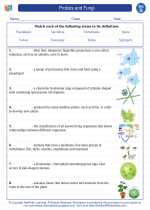Protists and Fungi
Protists and fungi are two distinct groups of organisms that are studied in the field of biology. Let's dive into the characteristics and importance of these organisms.
Protists
Protists are eukaryotic organisms that are not plants, animals, or fungi. They are a diverse group, including unicellular, colonial, and multicellular organisms. Protists can be found in various habitats, including freshwater, marine environments, and even within the bodies of other organisms.
Characteristics of Protists:
- Eukaryotic cells
- Can be unicellular, colonial, or multicellular
- Diverse modes of nutrition, including photosynthesis, ingestion, and absorption
- Reproduction can be asexual or sexual
Importance of Protists:
Protists play crucial roles in various ecosystems. For example, they are primary producers in aquatic environments, contributing to the food chain. Additionally, some protists are pathogens that can cause diseases in humans and other organisms.
Fungi
Fungi are a diverse group of eukaryotic organisms that include yeasts, molds, and mushrooms. They play essential roles in nutrient cycling and decomposition in ecosystems. Fungi can be found in various environments, including soil, water, and as symbionts with other organisms.
Characteristics of Fungi:
- Eukaryotic cells
- Mostly multicellular, some are unicellular (yeasts)
- Heterotrophic, obtaining nutrients through absorption
- Reproduction can be asexual or sexual
Importance of Fungi:
Fungi are crucial for the decomposition of organic matter, recycling nutrients back into the environment. They also form symbiotic relationships with plants, aiding in nutrient uptake. Additionally, fungi are used in various industrial processes, such as food production and the production of antibiotics and other pharmaceuticals.
Study Guide
- Define protists and provide examples of protists.
- Explain the diverse modes of nutrition found in protists.
- Discuss the importance of protists in aquatic ecosystems.
- Describe the characteristics of fungi and their role in nutrient cycling.
- Compare and contrast the reproductive strategies of protists and fungi.
- Explain the symbiotic relationships formed by fungi and their significance.
By understanding the characteristics and importance of protists and fungi, we gain insight into the diversity and ecological significance of these organisms.
.◂Science Worksheets and Study Guides Seventh Grade. Protists and Fungi
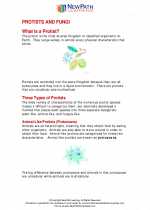
 Worksheet/Answer key
Worksheet/Answer key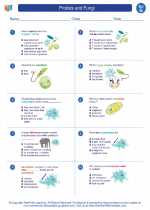
 Worksheet/Answer key
Worksheet/Answer key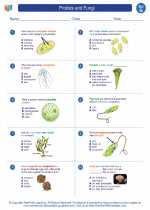
 Worksheet/Answer key
Worksheet/Answer key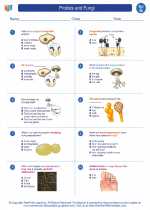
 Worksheet/Answer key
Worksheet/Answer key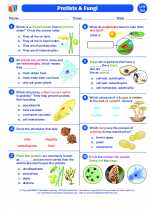
 Vocabulary/Answer key
Vocabulary/Answer key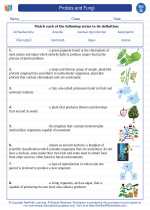
 Vocabulary/Answer key
Vocabulary/Answer key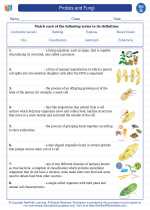
 Vocabulary/Answer key
Vocabulary/Answer key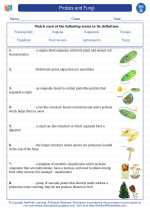
 Vocabulary/Answer key
Vocabulary/Answer key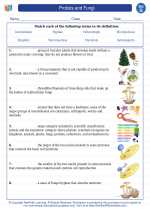
 Vocabulary/Answer key
Vocabulary/Answer key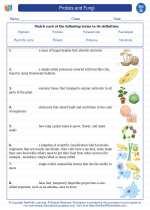
 Vocabulary/Answer key
Vocabulary/Answer key